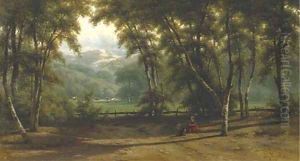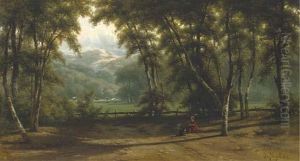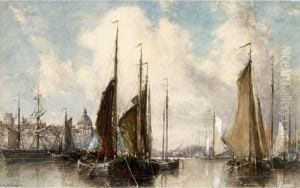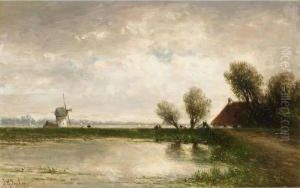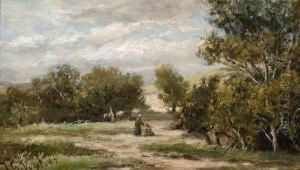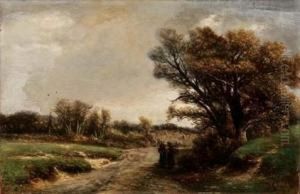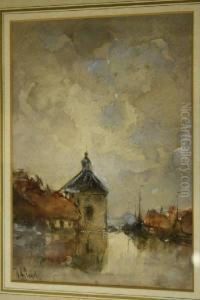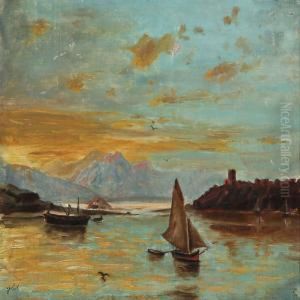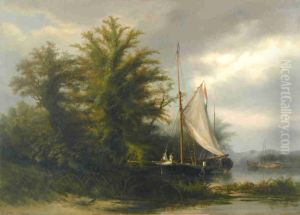Johannes Gijsbert Vogel Paintings
Johannes Gijsbert Vogel was a Dutch painter born on March 8, 1828, in Dordrecht, Netherlands. He was known for his landscape paintings, which often depicted the Dutch countryside. Vogel was part of the 19th-century artistic movement that focused on realism, capturing scenes of nature and rural life with a high degree of fidelity.
Vogel received his initial artistic training at the Drawing Academy in his hometown of Dordrecht. He later moved to The Hague, where he became a member of the Pulchri Studio, an important artists' society that played a significant role in the development of Dutch art in the 19th century. There, he was influenced by the Hague School, a group of artists who focused on representing the Dutch landscape in a realistic and often subdued palette.
During his lifetime, Vogel achieved moderate success and was recognized for his contributions to Dutch art. He painted a variety of subjects, including forest scenes, dunes, and river landscapes, often capturing the changing effects of light and atmosphere. His work is characterized by a meticulous attention to detail and a dedication to capturing the serene beauty of the Netherlands.
Vogel exhibited his work throughout the Netherlands and received various commissions. Despite the quality of his paintings, he did not gain the same level of international fame as some of his contemporaries. Nevertheless, his paintings have been collected and admired by those who appreciate the quiet beauty of the Dutch landscape tradition.
Johannes Gijsbert Vogel passed away on October 23, 1915, in The Hague. Today, his artworks remain in private collections and museums, contributing to the rich tapestry of Dutch art history. His legacy is that of a skilled landscape painter who captured the essence of the Dutch countryside during a pivotal time in the country's artistic development.
